Rio de Janeiro Governor Luiz Fernando Pezao on Monday signed a deal with several Brazilian universities and research institutes to develop a plan to clean up the polluted waters of the city’s sewage-strewn Guanabara Bay, where Olympic sailing events are to be held.
Pezao hailed the deal as a “very important step” toward the long-promised cleanup, which has dragged on for more than 20 years with little progress.
As part of Brazil’s Olympic project, authorities pledged more than six years ago to drastically cut the amount of raw human sewage in the bay before next year’s Games. However, only one of the eight promised treatment plants aimed at filtering much of the waste out of the rivers that have become open-air sewage ditches has been built, and the bay’s once-crystalline waters remain fetid.
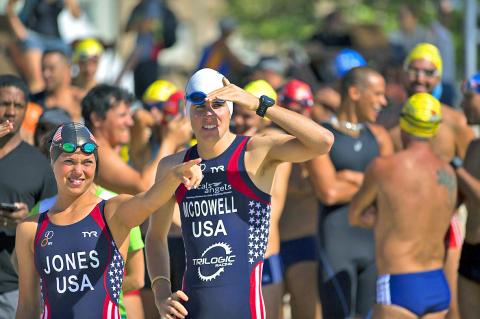
Photo: AP
An Associated Press investigation published last week revealed high counts of disease-causing viruses directly linked to human sewage in waters to be used for Olympic events.
In a statement from his office, Pezao was quoted as saying that since Rio won its Olympic bid in 2009, the city has boosted the treatment of sewage that once flowed into the bay from 17 percent to 49 percent. The original promise was to treat 80 percent of sewage that ends up in the bay by next year’s Games, but state and municipal officials have repeatedly acknowledged there is no way that pledge will be met.
Internet portal UOL quoted Pezao as saying: “We made a mistake. We can’t continue to make more mistakes.”
He added that the government would not commit to any further cleanup targets before the necessary studies have been completed, the UOL report said.
It also quoted Rogerio Vale, who was representing Rio’s federal university at Monday’s signing event, as saying: “We’re working toward a gradual plan and a long-term recuperation of the bay. We’re talking about 20 years. The bay can be in good shape in 2025, 2030 or even 2035.”
Seven universities — six of them public institutions — as well as several research institutes are to develop the new cleanup plan.
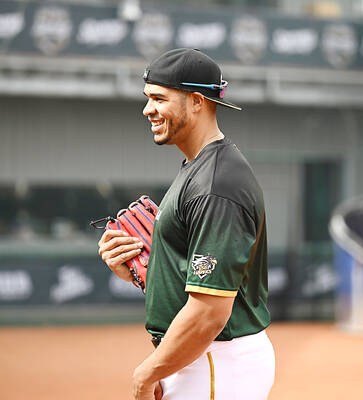
Tainan TSG Hawks slugger Steven Moya, who is leading the CPBL in home runs, has withdrawn from this weekend’s All-Star Game after the unexpected death of his wife. Moya’s wife began feeling severely unwell aboard a plane that landed at Taiwan Taoyuan International Airport on Friday evening. She was rushed to a hospital, but passed away, the Hawks said in a statement yesterday. The franchise is assisting Moya with funeral arrangements and hopes fans who were looking forward to seeing him at the All-Star Game can understand his decision to withdraw. According to Landseed Medical Clinic, whose staff attempted to save Moya’s wife,
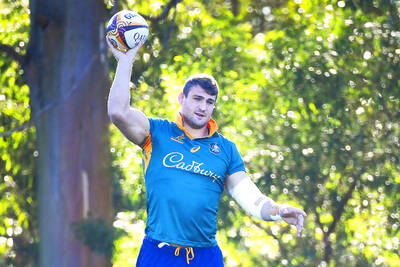
Wallabies coach Joe Schmidt yesterday backed Nick Champion de Crespigny to be the team’s “roving scavenger” after handing him a shock debut in the opening Test against the British and Irish Lions Test in Brisbane. Hard man Champion de Crespigny, who spent three seasons at French side Castres before moving to the Western Force this year, is to get his chance tomorrow with first-choice blindside flanker Rob Valetini not fully fit. His elevation is an eye-opener, preferred to Tom Hooper, but Schmidt said he had no doubt about his abilities. “I keep an eye on the Top 14 having coached there many years
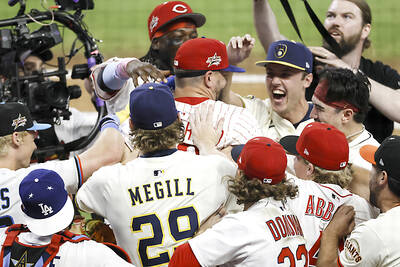
ON A KNEE: In the MLB’s equivalent of soccer’s penalty-kicks shoot-out, the game was decided by three batters from each side taking three swings each off coaches Kyle Schwarber was nervous. He had played in Game 7 of the MLB World Series and homered for the US in the World Baseball Classic (WBC), but he had never walked up to the plate in an All-Star Game swing-off. No one had. “That’s kind of like the baseball version of a shoot-out,” Schwarber said after homering on all three of his swings, going down to his left knee on the final one, to overcome a two-homer deficit. That held up when Jonathan Aranda fell short on the American League’s final three swings, giving the National League a 4-3 swing-off win after
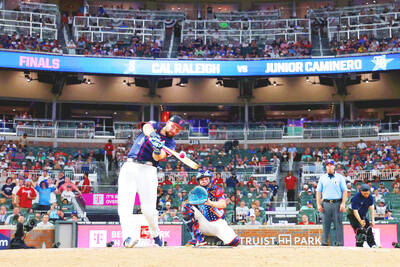
Seattle’s Cal Raleigh defeated Tampa Bay’s Junior Caminero 18-15 in Monday’s final to become the first catcher to win the Major League Baseball Home Run Derby. The 28-year-old switch-hitter, who leads MLB with 38 homers this season, won US$1 million by capturing the special event for sluggers at Atlanta’s Truist Park ahead of yesterday’s MLB All-Star Game. “It means the world,” Raleigh said. “I could have hit zero home runs and had just as much fun. I just can’t believe I won. It’s unbelievable.” Raleigh, who advanced from the first round by less than 25mm on a longest homer tiebreaker, had his father